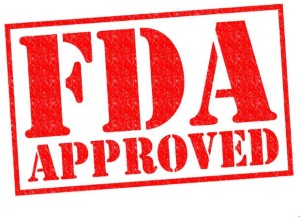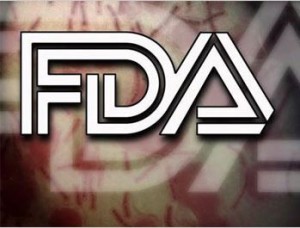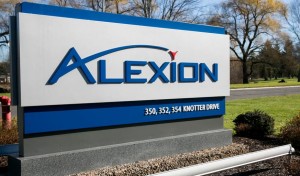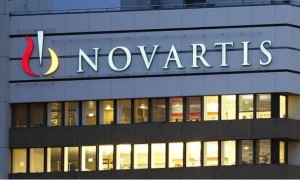- 5 Key FDA Decisions Expected in March (247wallst.com)
24/7 Wall St. has collected five big FDA decisions coming up in March and added some color, along with the trading range and price target.
- Opko Health - FDA had accepted its New Drug Application for Rayaldee (calcifediol)...hyperparathyroidism in patients with stage 3 or 4 chronic kidney disease and vitamin D insufficiency.
- Acadia Pharmaceuticals - FDA will review data included in Acadia’s NDA for Nuplazid (pimavanserin) for the treatment of psychosis associated with Parkinson’s disease
- Radius Health - submission of the NDA...for the investigational drug Abaloparatide
- BioMarin Pharmaceutical - pegvaliase for the treatment of phenylketonuria
- Alder Biopharmaceuticals - chronic migraine study...evaluating quarterly self-injectable administration of ALD403
- FDA still struggling with backlog of generic drug applications (statnews.com)
Under pressure to speed approval of generic medicines, the Food and Drug Administration...released data to defend its progress...the statistics indicate the agency is making headway, there are also clear signs the FDA continues to struggle with the workload...the number of full and tentative drug approvals has been rising each month since last April and reached 99 this past December...the agency also appears to be doing a better job of communicating with generic drug makers about their applications...Generic drug approval is gaining more attention thanks to the intensifying national debate over the rising cost of prescription medicines. Although prices have also risen for some of these copycat medicines, generics remain...lower-cost alternatives to brand-name drugs. And generics now account for 88 percent of all prescriptions written...The FDA is being a little disingenuous saying its backlog is almost cleared...The FDA faces...the increasingly large number of applications that drug makers are submitting...more than 4,000 have been filed in the past four years...the FDA workload will not abate...The upshot is that the rate at which new generics will find their way to pharmacy shelves is unclear — and that adds further uncertainty for health care budgets...
- U.K. cost gatekeepers say ‘show me’ to Alexion’s new rare disease med Kanuma (fiercepharma.com)
The U.K.'s cost-effectiveness gatekeepers think Alexion's newest rare-disease drug, Kanuma (sebelipase alfa), may be worth using in babies with lysosomal acid lipase deficiency. But it's going to need to see more research on the pricey med's costs and benefits before it shells out...At £491,992 ($704,630), the therapy doesn't represent good value for all patients, the National Institute of Heath and Care Excellence said in draft guidance. But there's still time for the company to change the watchdog's mind before it makes a final decision...Alexion...said in a statement that NICE had "failed to recognize the transformative clinical innovation of Kanuma" as a treatment for LAL deficiency, which can be particularly serious in babies. The inherited genetic disease causes fat to build up in cells, with survival for babies pegged at less than 12 months...it'll be up to the...drugmaker to prove the treatment's worth...
- Biosimilar drugs get boost as UK cost agency backs their use (reuters.com)
Cheaper "biosimilar" copies of expensive biotech drugs received a boost in Britain...when the country's health cost-effectiveness agency NICE (National Institute for Health and Care Excellence) said patients needing such medicines "should be started with the least expensive drug"...So-called biosimilars are gaining ground in Europe, which has been faster to adopt their use than the United States, offering savings to healthcare systems and threatening sales of companies making original products...The latest ruling by the National Institute for Health and Care Excellence is a further victory for the biosimilar lobby and may help two cheaper copies win market share from five other original brands...The potential for biosimilars to win business from pricey original brands is not only a focus for healthcare providers but also a growing concern for investors, worried about the impact on large drug company earnings...A growing number of biosimilar versions of top-selling biotech medicines are set to reach the market in the next few years, although the scale of their impact is unclear...
- US FDA backlog holding up revamp of inactive ingredients database (in-pharmatechnologist.com)
The process of sorting out problems with the US FDA's controversial Inactive Ingredients Database is shaping up to be a huge task, particularly as the agency is working through a backlog of missing updates extending back several years...The IID is a listing of inactive ingredients found in FDA-approved drug products, and is meant to be updated in a consistent manner as new medicines and their excipients are given the go-ahead by the regulator...it emerged recently that - from around 2005 - FDA resource constraints meant that the IID was not being updated at all with new excipient listings, and was left in hiatus for around a decade...If the database is not reliable, the review times for new medicines can be extended and may lead to applications being refused, according to excipient trade body IPEC-Americas...The agency is now working hard to work through the backlog of applications...There are still major concerns about the quality of the data in the IID...the IID has become peppered with inaccurate information that has compromised its integrity, including inaccurate ingredient names and potencies and ingredients listed as a percentage with no indication of basis units...Overall, the FDA says it is aiming to transform the IID into a complete, fully-searchable database that will link into other databases on nomenclature, toxicology etc and accommodate electronic submissions, to eliminate data entry errors and potentially allow it to be updated in real time...
- The biosimilar ploy that could save billions in health care costs (statnews.com)
As drug makers race to develop cheaper versions of complicated biologic medicines, some companies are pursuing a tactic that could prove a win for themselves, patients, and the health care system as a whole...They are running studies designed to convince doctors and insurers that patients can be easily switched from expensive biologics...to so-called biosimilars, which are almost identical variants. Their goal is to encourage these kinds of switches without waiting for the Food and Drug Administration to decide whether a particular biosimilar has the exact same clinical benefit as its expensive, brand-name counterpart...Standard FDA approval is good enough for physicians to write prescriptions, but only an "interchangeable" designation will enable pharmacists to substitute a biosimilar for a brand-name biologic without contacting doctors for permission first...more and more companies are eyeing switching studies as a shortcut to expanded market share...drug makers are pursuing this workaround that, as an upshot, could bring lower-cost medicines to more people...
- Bowing to pressure, FDA to reform painkiller approval process (reuters.com)
Bowing to pressure from lawmakers, Dr. Robert Califf...nominee to lead the Food and Drug Administration, said on Thursday the agency would reform its process for approving opioid painkillers...Last month Democratic Senator Edward Markey of Massachusetts placed a hold on Califf's nomination, preventing it from being voted on by the full Senate, until the agency agreed to convene an advisory panel to review future opioid approval decisions...The FDA said it has agreed
- ...to convene a committee before approving any new opioid that does not have abuse-deterrent properties. And it said the agency's pediatric advisory committee will make recommendations before any new labeling relating to children is approved.
- ...develop additional safety information for immediate-release opioid painkillers; strengthen the requirement for drugmakers to produce information after a drug reaches the market; and expand access to abuse-deterrent opioid drug formulations.
- ...considering making naloxone...accessible over the counter to treat opioid overdose.
- Europe launches new fast approval scheme for promising drugs (reuters.com)PRIME: priority medicines (ema.europa.eu)
European regulators launched a new scheme...to speed the approval of promising new drugs that address unmet medical needs by offering enhanced support to medicine developers as they work on clinical trials...The European Medicines Agency's initiative called PRIME, which stands for PRIority MEdicines, is the latest example of regulators on both sides of the Atlantic working to evaluate truly innovative drugs more swiftly than in the past...The European agency said it expected around 100 applications a year for its new PRIME scheme, which aims to foster better planning of medicine development to help companies generate the data needed for approval more rapidly...Experimental drugs accepted into the program will get continuous support from an EMA expert, who will be appointed early in the process and provide guidance on overall development plans and regulatory strategy.
- Canadian provinces close the door on Alexion over price of rare disease drug (statnews.com)
A simmering battle in Canada over the cost of a rare disease drug took a new twist as a government entity ended talks with the manufacturer because it failed to agree on evidence for justifying the price...The pan-Canadian Pharmaceutical Alliance, which negotiates drug prices on behalf of provinces and territories, was holding coverage talks with Alexion Pharmaceuticals over its Soliris (eculizumab) treatment for six months before reaching a dead end. The medicine costs up to $525,000...Patients and physicians want to try anything that may work to help them cope with their disease...public drug plans cannot provide coverage for all individuals who may wish to try Soliris or any drug — regardless of its cost — where the clinical evidence does not demonstrate improved health outcomes...Soliris is used to combat paroxysmal nocturnal hemoglobinuria...a genetic disease that destroys red blood cells, and also atypical hemolytic uremic syndrome...which is a progressive and life-threatening disease affecting the immune system...Alexion...negotiated in good faith and had not received any feedback until the decision to end talks was made...the UK government watchdog agency for cost-effectiveness, which is notoriously stringent about assessing drug values, last year recommended coverage for Soliris...
- US insurers dragging feet on covering new drugs, Novartis says (reuters.com)
Getting U.S. government and commercial insurers to cover new medicines can now take longer than in Europe, Swiss drugmaker Novartis said on Wednesday, blaming U.S. delays for weaker than expected sales of a key heart failure treatment...Novartis said poor sales of one of those new drugs, its heart failure treatment Entresto - just $5 million for the fourth quarter, well off expectations of analysts as well as the company - resulted from delays in making new medicines available to insured patients...European insurers and governments were now faster to reimburse for medicines such as Entresto and Novartis's new psoriasis and arthritis drug Cosentyx than those across the Atlantic...They (in the U.S.) have really developed their tools extensively around introduction of new drugs, which creates a period of time where access is difficult...And that period of time is now longer than it is in Europe...










